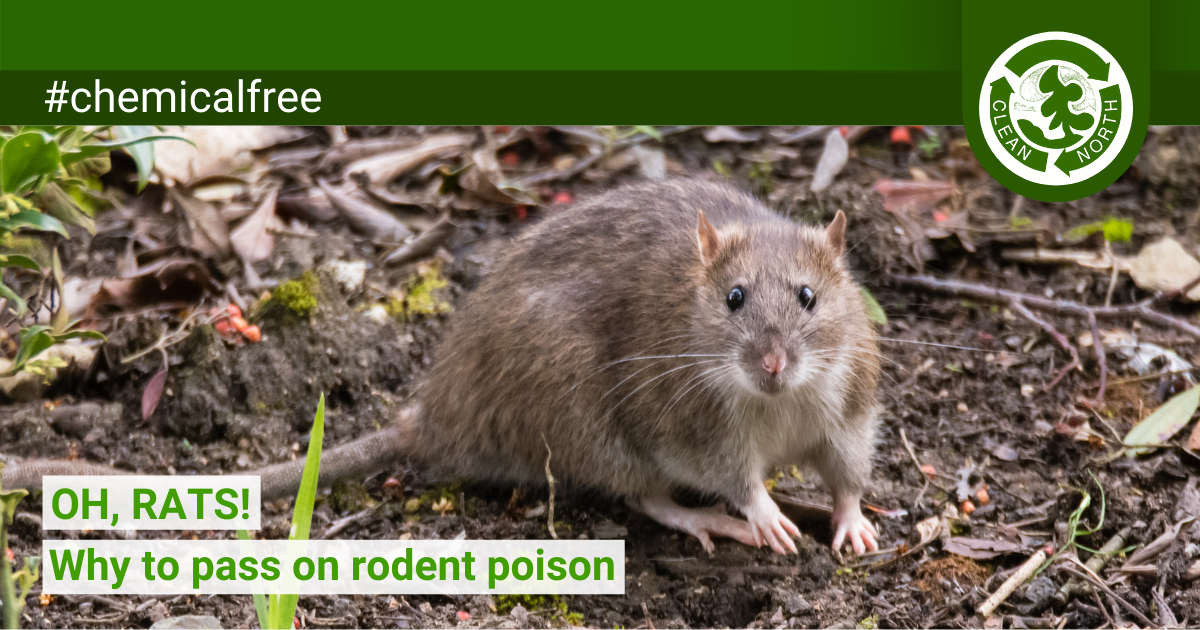
Rats are a fact of life in a river town like Sault Ste. Marie. Unless your yard is empty (no sheds, composters, shrubs, brush piles, etc.), you likely have rats — something most of us probably don’t like thinking about. We have a visceral reaction to these clever creatures, and with good reason, as they can carry diseases such as salmonella and leptospirosis. And unfortunately, climate change may be boosting rat populations in Ontario.
If you think you have a rodent problem, please think twice about using a rodenticide or rat poison. Yes, rat poison kills rats and other rodents. However, if a poisoned rat crawls into the yard of a neighbour who has a dog or cat, and that pet eats the rat, it may die as well. You could also mistakenly sicken or kill rat predators such as large birds of prey, coyotes, and foxes. Research has shown that many wild animals have significant levels of rat poison in them; a study in New York found rat poison in 81% of necropsied great horned owls.
Also, rat poison usually comes as small, often colourful pellets, which may be attractive to young children. Every year, the American Association of Poison Control Centers gets 12-15,000 reports of rat poisoning in children under age six. Health Canada says the situation in Canada is similar. Given that alternatives to poison exist, we recommend taking a pass on it.
The other issue with using poison is it doesn’t address the root cause. Something is attracting rodents into your yard and/or home. So what can you do to discourage them?
- Prevention is key:
- Keep your yard as tidy as possible. Rats love cover like brush and leaf piles. Store firewood well away from your house.
- Keep trash in well-sealed containers.
- Avoid feeding rats. If you put food outside for pets or birds, you are almost certainly feeding rats, too. Especially problematic — bird feeding practices (cheap seed with cereal fillers, seed with hulls, certain feeder types) that result in edible material on the ground. If you love to feed birds, read more about how to minimize the risk of rats.
- Keep your barbecue grill clean.
- Stir your compost often and keep it moist. Dry composters make cozy rat homes.
- Check the outside of your home/foundation for holes and crevices and make sure your chimney and vent openings have sturdy screens. Rodents can squeeze through incredibly tiny openings!
- If you have an attached garage, make sure the garage door seal is tight when it’s closed.
- Trim tree branches close to your house — they can help rats access your roof and chimney.
- You can try rat traps, but remember that rats are incredibly smart. If they are scared off by a snapped trap, they will never go near it again. Here’s a detailed Audubon magazine article about the problems with rat poisons and some creative and humane alternatives.




